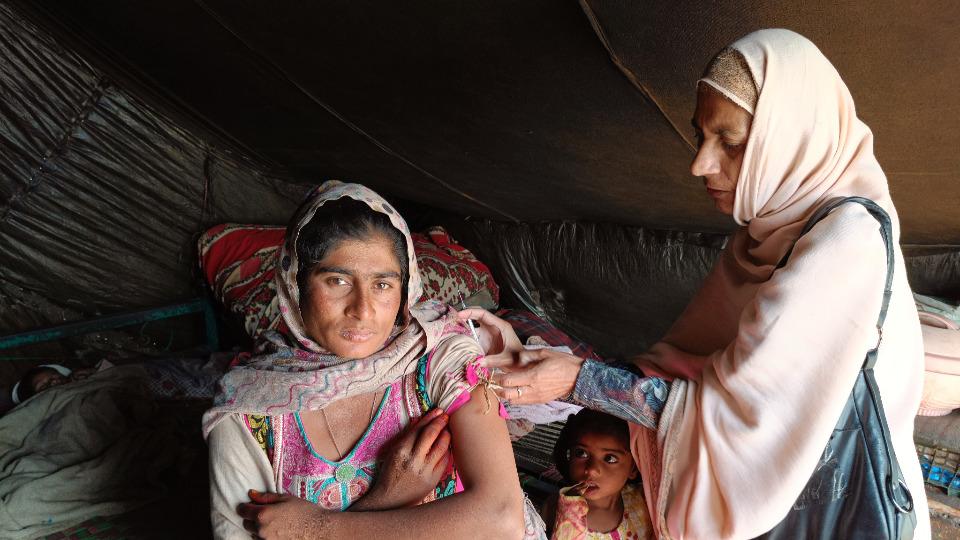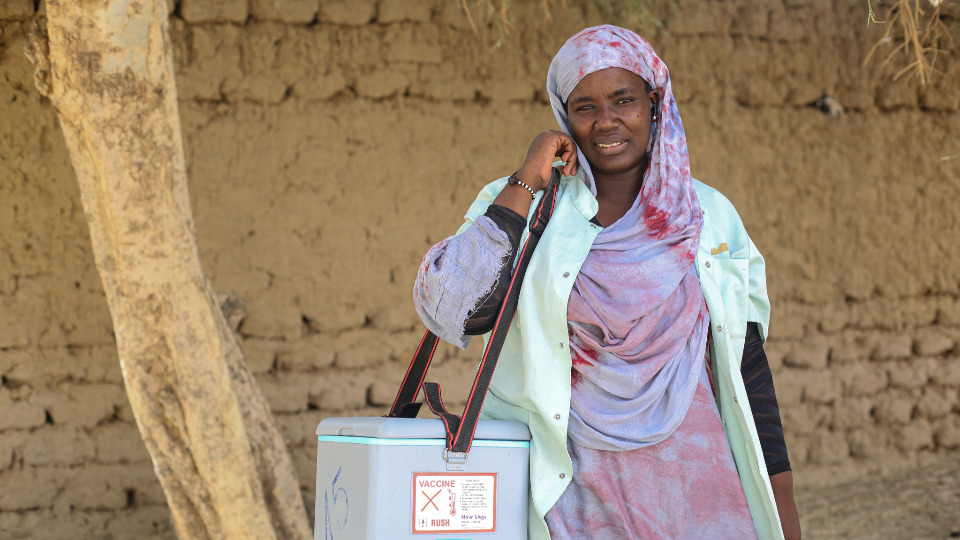
This story appears here courtesy of TheChurchNews.com. It is not for use by other media.
By Mary Richards, Church News
In remote areas of the Khyber Pakhtunkhwa province of Pakistan, people have learned to have resilience and adaptability in the face of challenges.
One such challenge is the lack of healthcare facilities. Babra, 36, is currently pregnant and faces high risks associated with maternal and neonatal tetanus, which is frequently abbreviated as MNT.
Maternal and neonatal tetanus kills tens of thousands of infants each year globally, and nearly 100% of babies that suffer from it do not survive without access to treatment facilities. Pakistan is one of the 11 countries where the disease persists because of inadequate health services and unsanitary birth practices.
“Last year, I suffered a miscarriage, but this time, a healthcare worker has helped me with vaccinations and also provided iron tablets,” Babra said in an article from UNICEF Pakistan. (Only her first name was used in the article.)
The Maternal and Neonatal Tetanus Elimination initiative, or MNTE, was launched by the government of Pakistan in collaboration with UNICEF in 2022. The Church of Jesus Christ of Latter-day Saints and Kiwanis International are supporting these efforts.
Healthcare workers had a hard time at first because of religious beliefs, vaccine fatigue, reluctance and restricted access due to floods and security concerns — but with perseverance and the help of more female vaccinators, the efforts have paid off.
Now, more than three million women across Khyber Pakhtunkhwa have been reached.
Nazma Shaheen, a healthcare professional, believes that the ongoing work in this field will significantly reduce the incidence of maternal and neonatal tetanus in Pakistan.
“It is gratifying to offer safe, effective, and often hard-to-access vaccines to women and children,” Shaheen said.
Working Together to Eliminate Maternal and Neonatal Tetanus
The Church of Jesus Christ of Latter-day Saints has supported UNICEF’s maternal and neonatal tetanus elimination programs since 2014.
A $5 million donation from the Church in December 2022 gave UNICEF more support in their efforts to eliminate tetanus in areas where it persists, like in Africa and the Middle East.

Tetanus is contracted through exposure to bacteria that can enter through wounds or a newborn’s umbilical cord. Maternal and neonatal tetanus is easily preventable by a series of simple vaccines, clean delivery and proper cord care. But it is estimated that one baby still dies of tetanus every 21 minutes around the world.
In the country of Yemen, on the Arabian peninsula, Arwein Ahmen, age 26, felt very anxious when she was pregnant.
”I know of a woman in my neighborhood who lost her first child during delivery, a child she and her husband had been eagerly waiting for. They lost the baby because the local midwife used contaminated tools during childbirth,” Ahmen said.
Ahmen lives in a neighborhood filled with shanty homes made of cardboard, plastic sheets and other scavenged materials.
Thankfully, her baby son, Abdulrahman, is healthy and happy — and Ahmen says that is because she received a tetanus vaccination at a health center when she was pregnant.
Before she became pregnant, Ahmed thought vaccines were only for children.
”Now I know that all pregnant women and women of childbearing age should be vaccinated, too,” she says. “It is critical and lifesaving.”
Maternal and neonatal tetanus was recently eliminated in the western African nation of Mali — a significant health milestone that came about because of the work of several trusted organizations and the collective efforts of the country’s health centers and healthcare workers.
Many times, mothers who lost a baby before being vaccinated spread the word to other mothers about getting the tetanus vaccine and using better childbirth practices.
In a social media post from Caring.ChurchofJesusChrist, the Church congratulated UNICEF on its critical contributions to this milestone in Mali.
“We are more inspired than ever before to continue our collaboration with UNICEF and support MNT elimination work in Nigeria and Pakistan, two of the remaining 11 countries where MNT is still endemic,” the post said.
Copyright 2024 Deseret News Publishing Company.